Thousands, possibly millions, of protesters waved placards angrily in a march now regarded as the largest protest of its kind in history, against the Iraq war. Reclined on my sofa, age 13, I watched, as streams of people formed large crowds, not entirely aware of the situation, but thinking this much: war is not the answer.
The world was told that the removal of Iraq’s despotic leader Saddam Hussein would free Iraqis from their suffering. A few months into its invasion, the US assured us that it was ‘Mission Accomplished’. President Bush, just a year later, declared that Iraqis “daily life is improving”.
Even after war was declared ‘over’, a dystopian reality had settled. The war never left the country, and the number of innocents killed has multiplied.
Aspirations of a better Iraq were quickly dashed for a population suffering under the reality of what the war invited in and what it took away. On the 14th anniversary of the invasion, what little hope there was has dissolved entirely.
Iraq today, is the fallen tree whose thudding sound travels across continents, without being heard.
The sense of optimism and purpose those of us felt in February 2003 in defiance of Blair, has since been replaced by despondency.
Solidarity expressed 14 years ago is a far cry from the treatment Iraq currently receives from the British public. Iraq presents just one case of political apathy, also reflected in recent elections and the controversial EU referendum. Young people of voting age chose not to vote, unconvinced that it could ever tip the scales in their favour.
Britons no longer participate in anything they deem political. Commenting on the ineffectiveness of the march, 30 year old artist and student mentor, Alex Smith, said at the time he believed that “direct action could change politics but soon realised that demonstrations don’t make governments change their mind”.
Although Blair is no longer head of state, his legacy is visible in the continued involvement of the British state in Iraq.
Once moved by government betrayal, today we are paralysed by it.
Conflicts in the region have since spread like an untamable epidemic. Crowds no longer rise up, even if just in a show of solidarity with Iraq’s people.
We have become inured to the torpedoing violence careering its way through Iraq, the cumulative effect of which has worn us down.
Iraq is still in the throes of bitter sectarian violence. The rise of Islamic State (IS terrorists) and relentless coalition bombing has led to floods of civilians leaving their homes while military operations, codenamed ‘Operation liberate mosul’, rage on fiercely.
Over 325,000 have been displaced from their homes in the city. The numbers of those killed - already in the hundreds - rises daily.
Even in supposedly safe liberated areas there remains a constant threat, as shown by the latest suicide bombings in Tikrit.
While Iraq has gone by the wayside, causes such as Palestine remain popular among the activist community.
Nonetheless, it continues to astound me that an invasion that caused such huge worldwide protests has not led to a more voracious appetite for Iraqi related news.
Do we care so little that we watch indifferently as spectators of these atrocities.
There is one thing I do know for certain. We should not overlook our government’s participation in propping up an illegitimately installed government, committing crimes against its own people.
“We should never forget the hypocrisy and deceit of those like Blair who took us into these wars and continue to justify them”, as Lindsey German says.
By remaining silent we legitimise a war millions protested against, and accept a reality Iraqis themselves continue to contest.

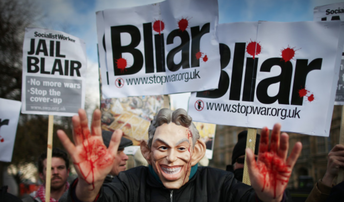
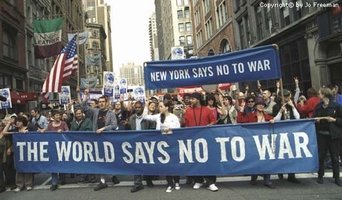
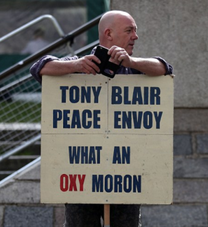
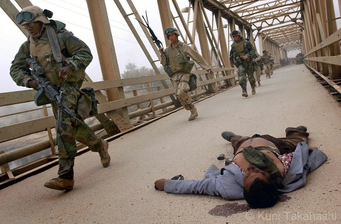
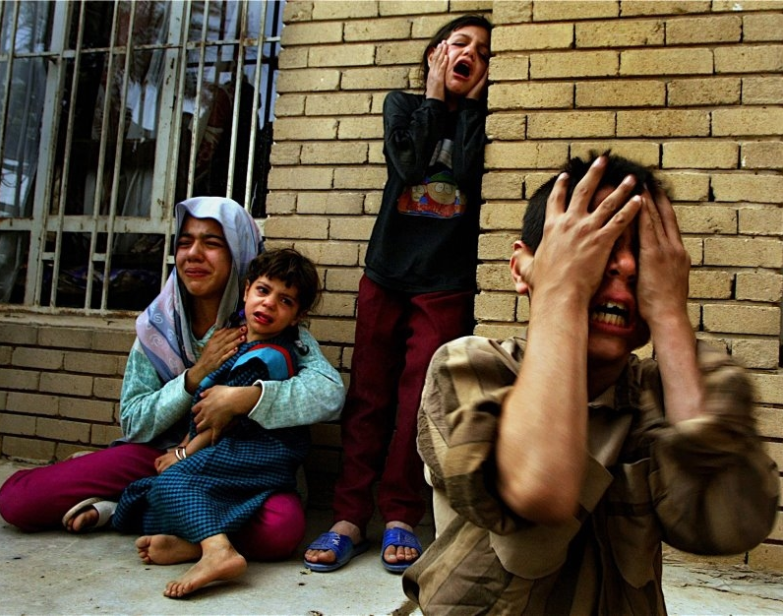
 RSS Feed
RSS Feed